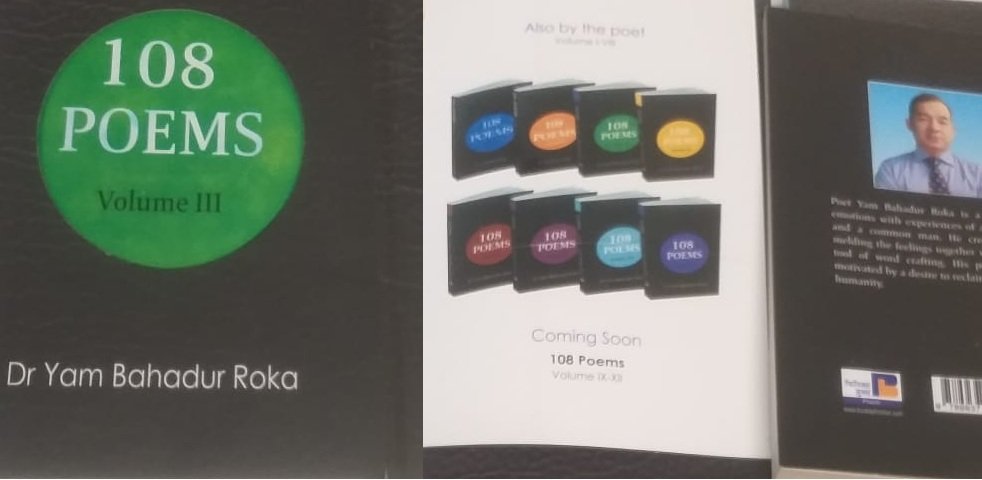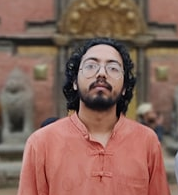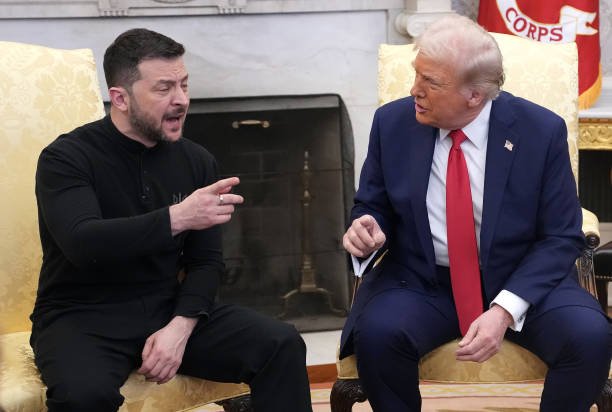‘108 POEMS’: An exploration of thoughts and emotions in various volumes

Literature, as we know, is a great way of expressing events, ideas, or feelings, and it is a form of art truly dedicated to a reader; to grasp the essence of the writing from where the writer has collected the words and from where the story-telling is coming. And among the various genres of literature, poetry is considered the vaguest of all, yet it is the simplest form of expression in my view. As a reader and writer of poems myself, it fascinates me when someone truly expresses the depth of his/her ideas or captures the gut feelings in a work of art in just a few verses. And written in simple language, some poems are sincere, emotional, and powerful as well. Such poems are timeless and astounding to anyone who can relate the words with the joys and heartbreaks of life. And just recently, I came across the same kinds of poems I just talked about. The poems are from the different volumes of the book titled ‘108 POEMS’ by Dr. Yam Bahadur Roka.
Only recently, the poet has published 6 volumes of books, making a total of 8 volumes of a collection of poems each containing 108 poems. He had published volumes 1 and 2 a few years back and now he has published volumes 3 to 8 all at once. And with publishing these volumes, he has announced that he will publish two more volumes of '108 POEMS' in the coming days. He has also stated the meaning behind the title of the book in the Preface of each volume. He has stated that he chose to put 108 poems in each book and also the title as ‘108 POEMS’ because of the scientific and religious significance of the number 108, which he has elaborated further with many details. He has also mentioned that due to COVID, he had not gotten an opportunity to publish the Volumes, thus we get to read six new Volumes all at once. All the Volumes have been published by Phoenix Books.
And in the blurb, there is a short introduction of the poet by the senior poet Suman Pokharel, by which we know that the poet, Dr. Yam Bahadur Roka, is a Neurosurgeon. Pokharel has claimed the poet to be a fine blend of emotions with the experiences of both a Neurosurgeon and a common man. It is said there, that his creations have feelings that are presented rhetorically, which I too have found to be true. Pokharel has quoted his poetry as “mostly motivated by a desire to reclaim the lost soul of humanity”.
In each volume, the poet has highlighted an expression in phrases in the initial pages along with the description of the volume by himself that depict the feelings of the poems in the volumes and helps us relate what kinds of emotions and thoughts are in play in the 108 poems inside. Like in Volume 3, he has dedicated the poems to the people who have experienced the tragedy of the separation of their love. He has written “Happy are those who never fell in love and yet the winner is the one who sacrificed their love! Dedicated to all those who ever loved someone and enjoyed the pain of separation!” He has described the poems of Volume 3 (and other following Volumes as well) as poems dealing with topics of politics, guilt, companionship, friends, and family, and wants to give a message regarding the importance of love, failure, death, and the ego and the minor problems we face. He has dedicated the poems to the lover whose love was not accepted and the poems depict the emotions of the reasoning of his feelings and passion. The poems, according to him, are dedicated to the loved and the betrayed and also deal with the common social topics that are ravaging our present times. The poet has used 'ABAAB' style of rhyming in most of his poems, but many other poems have different types of Metrics as well.
With poems in Volume 3 like ‘The Poison Is Myself’, ‘It Was Not Enough’, ‘It’s Another Lonely Evening’, ‘The Honest Truth’, ‘Forgive Me for I have Loved’, ‘In My Sad Eyes’, ‘I Cannot Be Yours’ and many more, he has expressed deep emotions of sadness and excruciating pain which as a reader, I felt strongly as well. The anguish and the blues of the lover whose love goes unnoticed or ignored or even denied, well, what more can we do with a heartbreak inside where we find it hard to even shed a tear outside, as in the poem ‘Shed a tear’, he has expressed the depth even clearly as I felt pure gloom relatable to any man when he wrote “Shed a tear, I can, but shouldn’t due the social norms, I let it be” and again in the last line of the next verse “Shed a tear, I do in a dark silent room, the feelings creep and leap”.
Volume 3 also sees two series of poems inside the book, namely ‘The Sad Year Series’ in which the poet has expressed the ups and downs and agony of each month that started with hopes in January and ended with utter despair in December, and ‘The Lonely Week Series’ where he has written of his expectations and reality through 7 days of a week only to be defeated utterly. The style of making a series based specifically on something can be seen in other Volumes as well, like in Volume 4, there is ‘The Body Series’ and ‘The Five Element Series’, ‘The Happiness Series’ and ‘The Broken Series’ in Volume 5, and ‘The Moon Series’ in Volume 7.
Poems from Volume 8 like ‘Relieve Me’, ‘Unparallel Love’ and even the one titled ‘Laughter’ expresses the cold emotions we feel of the longing for love unachieved, of the distortions of life as we live, and of the laughter we always sought but could not find. The poet has expressed grief in a way that uses a lot of figures of speech in Poetry, such as Irony, Metonymy, Oxymorons, Puns, and many more, which shows his rhetoric and artistic elegance. An example I would like to give you is of the poem from Volume 8 titled ‘Happy’ where he has written “Scorching heat in feelings that freeze the mind”, “Trees with thorn that pierce heart with flowers” and “Everywhere is black and the stars reflect darkness”. These lines that attempt to express his feeling using a Paradox, are noteworthy. Plus, here are the last three lines of the same poem that goes: “Wounded with the dreams of the endless love,
I am not the one neither this forever the open door,
Alone I am happy and tonight need you no more.”
It shows apathy towards love he once longed for, but unfulfilled, killed his care for anything sweet that he stopped desiring it. These lines show the poet’s skillful presentation of Irony with flawless use of Rhyming, not to say the depth of the feelings expressed. The same kind of sadness, or even greater, can be found in the poem titled ‘Tears’ from the same Volume, where he has expressed the enjoyment of agony, or rather the acceptance of it with lines like “Loneliness no longer bothers me”, “Being gloomy and lonely is enjoyable”, “Yes, give me tears, give me tears” and “Pain is the best sensation felt now”. And the last line shows how much he wants to let out his unheard feelings which say, “My eyes are always dry, need tears.” The Pun is greatly adjusted here, needless to say, the emptiness we feel by just reading this.
But not all poems are about just sadness and pain, or someone drowning in the ocean of pessimism and despair, as there are poems that talk about virtues, equality, freedom, hope, and divinity as well. A few examples are the poems ‘Connoisseur’ and ‘Classical Music’ from Volume 8. In ‘Connoisseur’, the poet has highlighted the value of kindness and love, and equality and freedom, while in ‘Classical Music’, the poet gives us a taste of music vicariously and points out the divine force in music, the godly aura to steal the sadness away and the faint presence of Classical music which is but vast as an endless ocean of melodies that will remain rich and richer than any other trending music, with the glimpse of God in it.
The poet mostly expresses painful emotions like in the one titled ‘Despair’ from Volume 4, the same volume which also has this phrase written on the initial page “With so much to admire and care, why does one despair!” like every Volume where the poet has written something unique and relatable about life. But what intrigued me is the use of sequences of meanings changed as I read on. What I am trying to say is, many of his poems build up and then reach climax just like in Drama. An example of this is the poem titled ‘The Good Man’ from Volume 4, where he builds up the character of an ideal man, and his virtues saying that he “Wanders with no aim but hope alone, The good man transforms the world.” Later on, the poet brings a twist to the story where the world accuses of something unjust that becomes justified with crazy circumstances even though it should not have been so, and the good man and all the good things he did was in vain for the takers, and the good man now is an unwanted thing for the heart which is not true.
In a nutshell, the poems are one of a kind and the interpretation of every reader might not be the same and how we feel may be different from what the poet felt while writing the poems. The poems are worth a read as they are works of art with total magnificence and a journey into the endless ocean of emotions. But one can only write so much as a summary, so you will have to read the poems yourself to catch a glimpse of ‘108 POEMS’.






Leave Comment